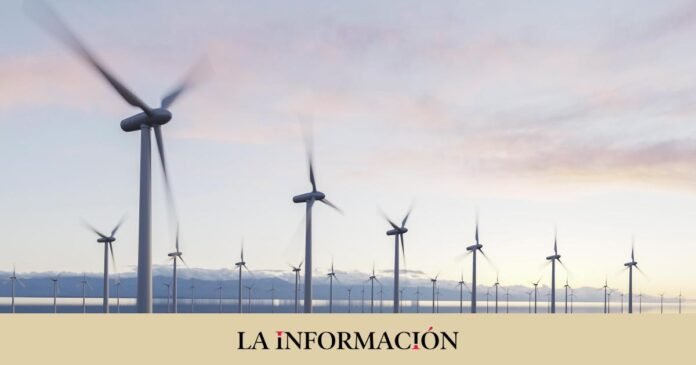The European Commission has not assessed in depth the ecological consequences of the deployment of marine energy infrastructure, a key sector to achieve climate objectives in which 17 billion Community euros have been invested in the last 15 years, but which can be “harmful” to the environment.
That is the main conclusion that emerges from a report published this Monday by the European Court of Auditors, in which the auditors express their fear that “the expansion of marine renewable energy in Europe will be detrimental to the marine environment, both by below and above sea level.”
“The deployment of marine renewable energy raises a series of practical, social and environmental problems that have not yet received sufficient attention,” maintains the Court of Auditors. Unlike other audits focused on checking whether community actions and investments in a policy area have been efficient, this time the report examines in particular “whether the development of marine renewable energy is sustainable in the EU.”
To this end, the members of the court held interviews with staff from the European Commission, the Member States, the European Investment Bank, large industrial associations, environmental NGOs and external experts, and in particular audited the cases of Germany, Spain, France and Netherlands. The auditors detect a lack of study and knowledge about the implications of marine energy, and in particular of “the cumulative effects on the marine environment” caused “by all past, present and future activities.”
Effects on biodiversity
This lack of information raises possible negative effects of marine energy on biodiversity, such as the collision of birds against mills or maintenance vessels, changes in water quality due to the release of pollutants, displacement of species due to noise, degradation . of habitats or changes in bird migration patterns due to variations in the electromagnetic field.
However, it can also have positive consequences, such as the recovery of habitats due to the exclusion of human activities in marine energy zones or the proliferation of certain species of fish and invertebrates due to the “reef effect”: a Dutch company will test new Mussel farming methods in an offshore wind farm.
“Many Environmental Aspects Related to the Planned Deployment of Marine Renewable Energy Need to be Acknowledged” and “Given the Magnitude of This Deployment in the Coming Years, It May Leave a Significant Imprint on Marine Life,” the Court notes.
fishing and employment
In two countries with strong fishing fleets such as France and Spain, major conflicts have not yet arisen over the development of marine energy, say the auditors, who warn that the deployment of infrastructure will imply a progressive reduction in access to fishing areas, which could reduce income from the activity and increase competition between fishermen.
In areas where marine energy installations have also been observed, “some increases in fish density” have also been observed, although the auditors note that “larger-scale fish population improvement is uncertain.”
The Development of the Sector Will Also Have Effects on the Nux Employment of Workers That Industry Has Increased from 400 Professionals in 2009 to ABOUT 77,9000 in 2020, There is a “Risk of Losing Jobs in the Fishing Sector”, in a context in which “there are few studies on the socioeconomic implications of the development” of these technologies.
Energy goals
The EU has set the goal of reducing its CO2 emissions by 55% in 2030 compared to 1990, for which it is necessary to electrify the production system and generate that energy in a renewable way, which at the end of the decade should represent the 42.5% of final energy consumption in the community block, compared to 22% in 2021.
2020 30 and 300 GW in 2050 (1 GW and 40 GW respectively for oceanic energy, which generates energy thanks to waves, currents and tides).
“They are ambitious (goals) and may be difficult to achieve,” the auditors point out. Among the challenges that threaten the sector, the Court states that “the fundamental raw materials are almost entirely supplied by China”, in addition to warning of possible bottlenecks and rising inflation as factors that may affect the deployment of infrastructure.

